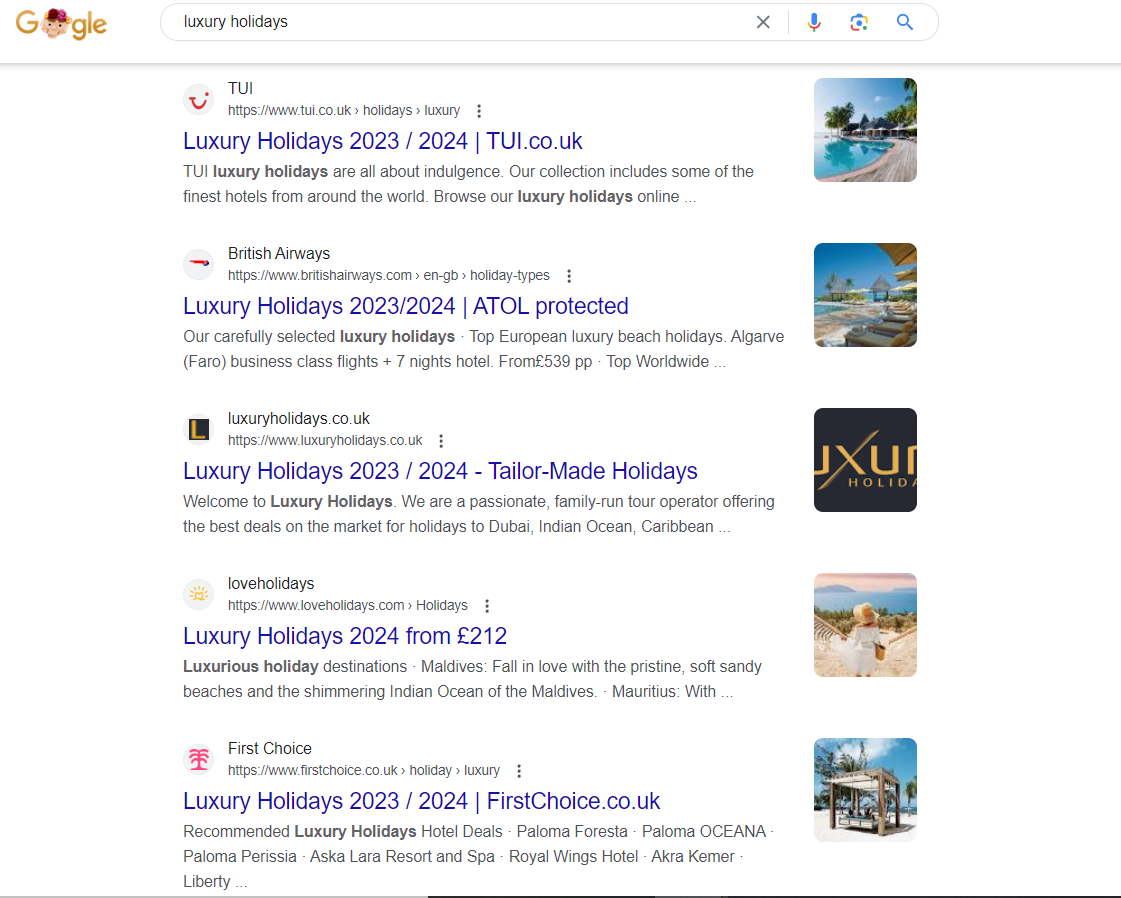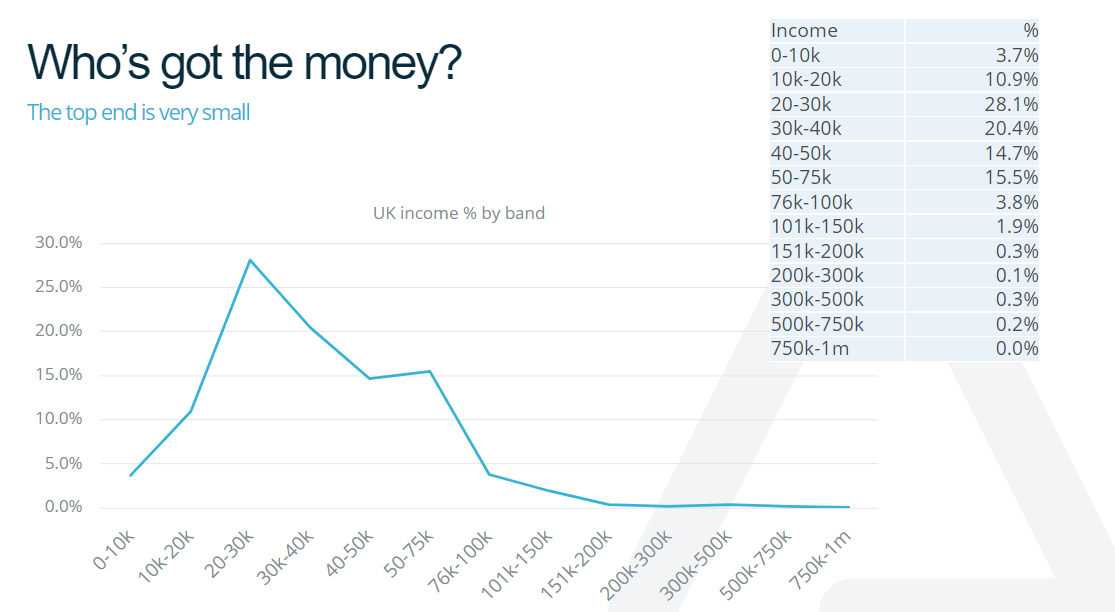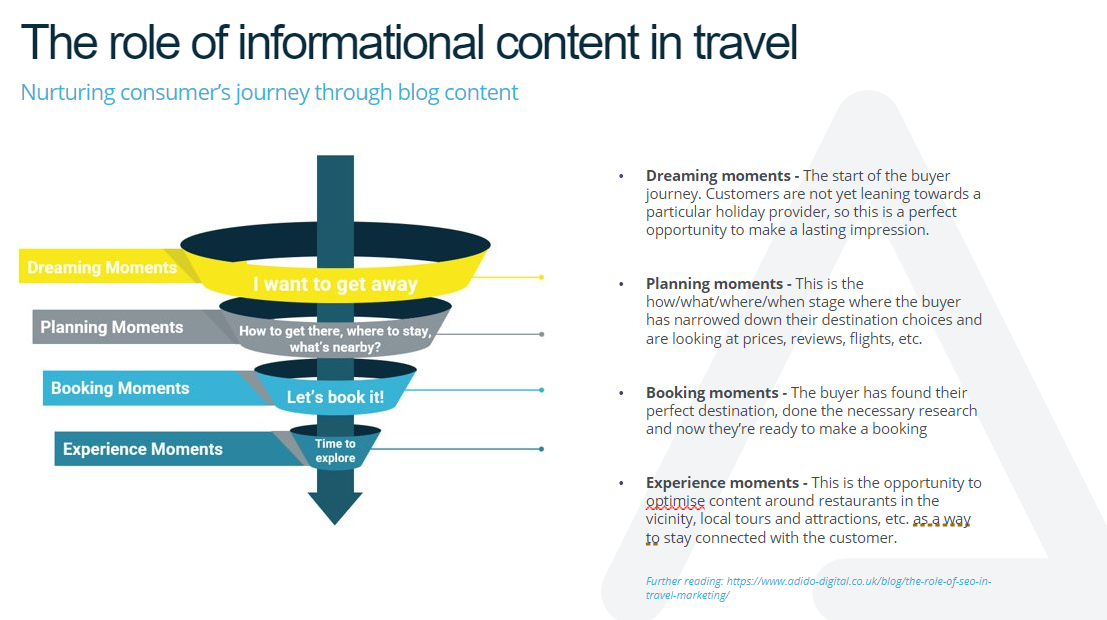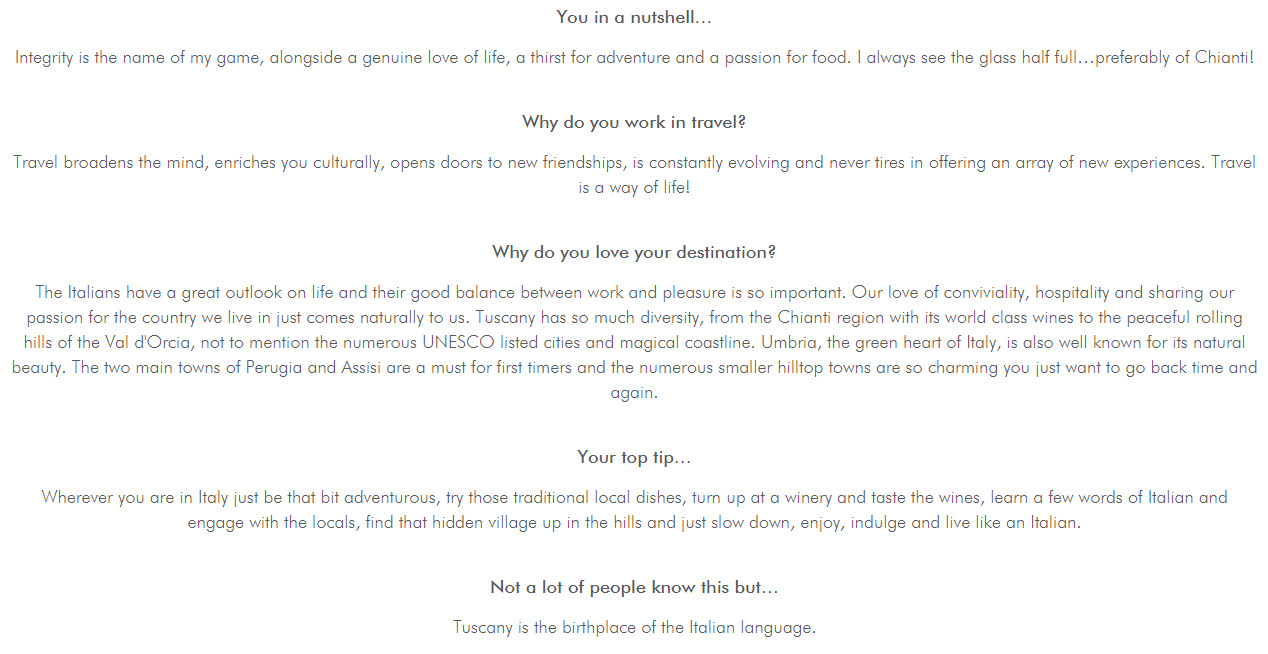If you are a luxury travel brand, you will already know how hard it is to stand out in the crowded and competitive online space. You may offer high quality experiences, but how do you make sure your target audience finds you when large, mainstream travel brands are dominating the search engine results pages?
The evolution of ‘luxury travel’
In recent years, the term 'luxury' has become particularly subjective. Ask 10 people across a range of demographics what their idea of a luxury holiday is and it’s likely no two answers would be exactly the same. A £10,000 holiday may be considered a luxury experience by many, while others might be tempted to add an extra zero (or even two!) to that.
This ambiguous perception of luxury extends to the digital realm, especially when it comes to search engine optimisation (SEO). Type ‘luxury holidays’ into Google and you won’t find niche, bespoke high-end travel brands dominating page one of the search engine results pages (SERPs), but rather leading mainstream travel firms such as TUI and First Choice, who have more resources and authority to rank for such a broad and competitive term, while smaller, yet more authentically luxury, brands struggle to get a foothold.

An inconvenient truth
One of the golden rules of marketing is to know thy enemy…or rather, thy competitors. Yet when it comes to SEO, many luxury travel bands are surprised to discover their main competitors are not other niche, luxury travel operators, but actually the likes of TUI, British Airways, Loveholidays and co.
In terms of visibility and rankings on Google, Bing, etc., these well-known brands, catering to a wide audience, often swamp niche providers that offer more authentically luxury experiences. Rightly or wrongly, dilution of the term ‘luxury’, and its subjective, broad definition, means the big boys of travel are always likely to have the monopoly on this sort of keyword.
It can all feel a bit David and Goliath. But this where Adido can help. As a luxury travel SEO agency with 20 years in the business, we can share our SEO best practices for increasing online visibility, targeting your audience, generating more leads and boosting brand image.
Adido’s top tips for luxury travel SEO
1. Know your audience
At the heart of any successful marketing strategy lies a deep understanding of the target audience. For luxury travel brands, this means defining what a typical customer looks like and what sets them apart from regular travellers.
For the vast majority of luxury travel firms, the target audience is small and select. They are likely to be in the top 10% of earners, over 50 and based in London and major cities across the UK.

Merely using this information alone is not enough. To be truly competitive, brands need to look beyond age and income bracket, and develop intricate content mapping strategies based on personas.
- Hobbies & interests: do they enjoy fine dining, private yacht expeditions or have a keen interest in history? Tailoring your offerings to these interests is key.
- Values: if your target demographic values sustainability, for instance, how prominently is this showcased on your website? Brands that prioritise sustainable travel, conservation and respect for nature, resonate deeper with many travellers.
- Travel desires: they are most likely on the lookout for unparalleled experiences – whether it's a private jet tour across Southern Africa or a chauffeur-driven wine-tasting tour through Tuscany.
For discerning high-net-worth travelers who are no longer impressed by gold taps and caviar, “luxury” has taken on new meaning. With scarcity always integral to its definition, it makes sense that “luxury” is becoming associated with exploring remote wildernesses or tracking rare animals. After all, what greater privilege could there be?
Building topic clusters is also a great way to identify opportunities for content creation that addresses the specific interests and needs of the target audience more effectively, as demonstrated in the example below:

2. Identify the right keywords
Traveller personas and topic clusters are a great start for identifying keywords, but deeper research is essential to pinpoint the most impactful keywords with optimal ranking potential.
We’ve established that the term ‘luxury’ isn’t enough, and relying on it will most likely leave you languishing in the abyss of page 3 of the SERPs. To boost rankings and visibility, brands need to home in on more niche keywords that resonate with your target audience and brand essence.
For example:

Let’s delve a little deeper. What exactly is the user looking for when they type ‘private island holidays’? Are they looking for a secluded romantic getaway? A lavish party location? And which locations are they considering?
This is where you can look at more specific related keywords, such as:
- ‘private island holidays for couples’
- ‘private island holidays caribbean’
By understanding the nuances of search intent, you can tailor your content more precisely to meet the needs of your potential customers. This will likely lead to gaining more targeted traffic, higher user engagement, longer times spent on page, and eventually, better rankings.
3. Recognise the importance of informational content
You’d be amazed how many luxury travel brands dismiss the value of informational content such as blogs and articles. In travel marketing, blogs are more than just filler content —they're strategic tools for brand storytelling and building digital visibility. When a traveller searches for exclusive experiences, a well-optimised article with strong, relevant keywords ensures that the brand appears prominently, capturing attention and driving organic traffic.
For instance, if a brand specialises in exclusive French chateaux holiday experiences, a well-researched blog detailing the history, legends and insider tips of select castles can entice history-loving high earners. This tailored content not only positions the brand as an authority but also directly appeals to the specific interests of its audience.
Using your own expert knowledge with tools such as Semrush, Google’s People Also Ask, Answer the Public and AlsoAsked to identify related long-tail keywords can help you decide what informational content will be most relevant to your target audience. It’s then imperative to ensure that any content you publish is visible to the customer at the right point of the consumer journey:

In essence, informational content is one of the most powerful tools in a luxury brand's SEO arsenal, so ignore it at your peril. If you’re not sure of the worth of your blog and information content, then it’s worth trying to understand the value and ROI of blog content using Google Analytics 4.
4. EEAT….easy as 123….
Demonstrating E-E-A-T (Experience, Expertise, Authoritativeness, Trustworthiness) within your brand is essential. Get these elements right and you’ll not only showcase your team's expertise to your audience, you’ll also get a big thumbs up from Google too. Here are some ways to implement EEAT into luxury travel content:
Experience: Show that you have firsthand or life experience in the travel destinations that you are writing about. For example, include photos, insider tips, videos or personal stories that prove you or your content creators have visited the places in question.
Expertise: Showcase your content creators / blog authors to demonstrate they have knowledge and skills in the travel industry and include links to their bios across your website:

Authoritativeness: Demonstrate that you are recognised as leaders or influencers in the travel niche. For example, include links to your brand’s social media profiles, publications or media appearances.
Trustworthiness: Show that you are honest and reliable. For example, include contact information, privacy policy, terms and conditions along with customer reviews or testimonials. You want to demonstrate to your audience that you are a brand that is passionate about the customer experience.
5. Have the right expectations
It’s no secret that SEO for luxury travel can be more challenging than general travel SEO. With a narrow band of phrases to target and search volumes being smaller than for more generic travel terms, it’s rare that SEO will be your main source of leads. That said, it’s crucial to have every base covered and be there when your luxury travellers are searching online.
Luxury travel websites have conversion rates of typically less than a few percent, so with fewer searches coming in, you have to expect fewer leads hitting your inbox. But as we know, luxury holidays are not cheap, so it only takes a handful of great leads each month or quarter to bring potentially huge profits in the short term, as well as repeat and referral business in the long term. This is why search intent is so crucial.
It’s worth sticking with your luxury SEO campaign over time as your potential travellers may take a little longer in their decision-making process, sometimes researching options for months- or even years - ahead of making a booking. Measuring success over a few months isn’t going to give you the right perspective and it’s worthwhile taking a longer look over 12-24 months to really see the benefit.
Final thoughts
With increasingly diluted perceptions of 'luxury', comes a need for a sophisticated, tailor-made approach that goes above and beyond the fundamental principles of SEO. And while the task may seem daunting, especially when pitted against industry giants, it's not insurmountable. A true luxury experience isn't just about 5-star hotels and first-class travel —it's about exclusivity, personalisation and impeccable attention to detail.
Your brand's SEO strategy should mirror this ethos. Dazzling imagery, a fantastic website and smooth user experience go a long way – but providing high-quality content that taps into what makes your audience tick will give you that edge, boosting visibility and helping you scale the SERPs for many years to come.




